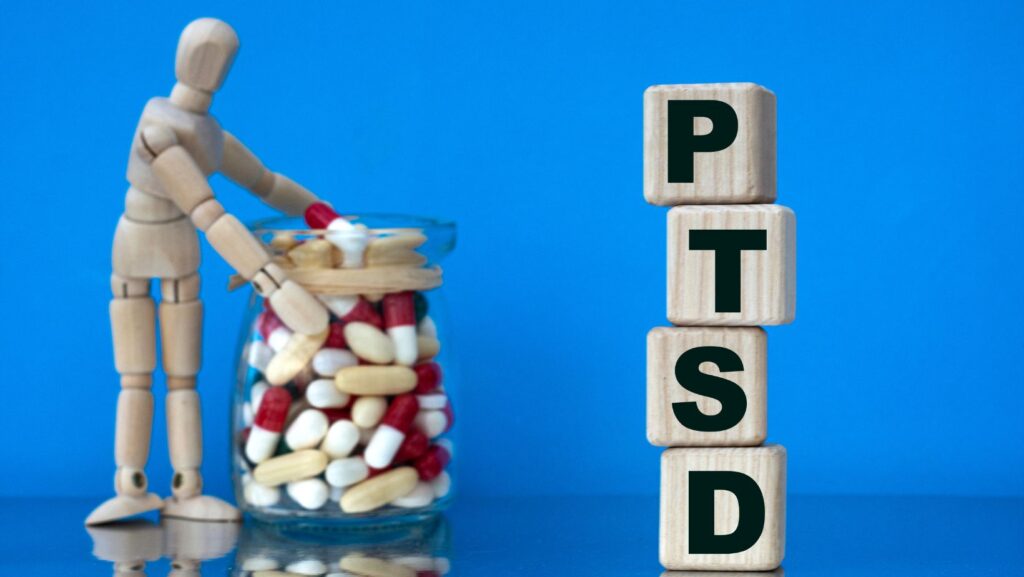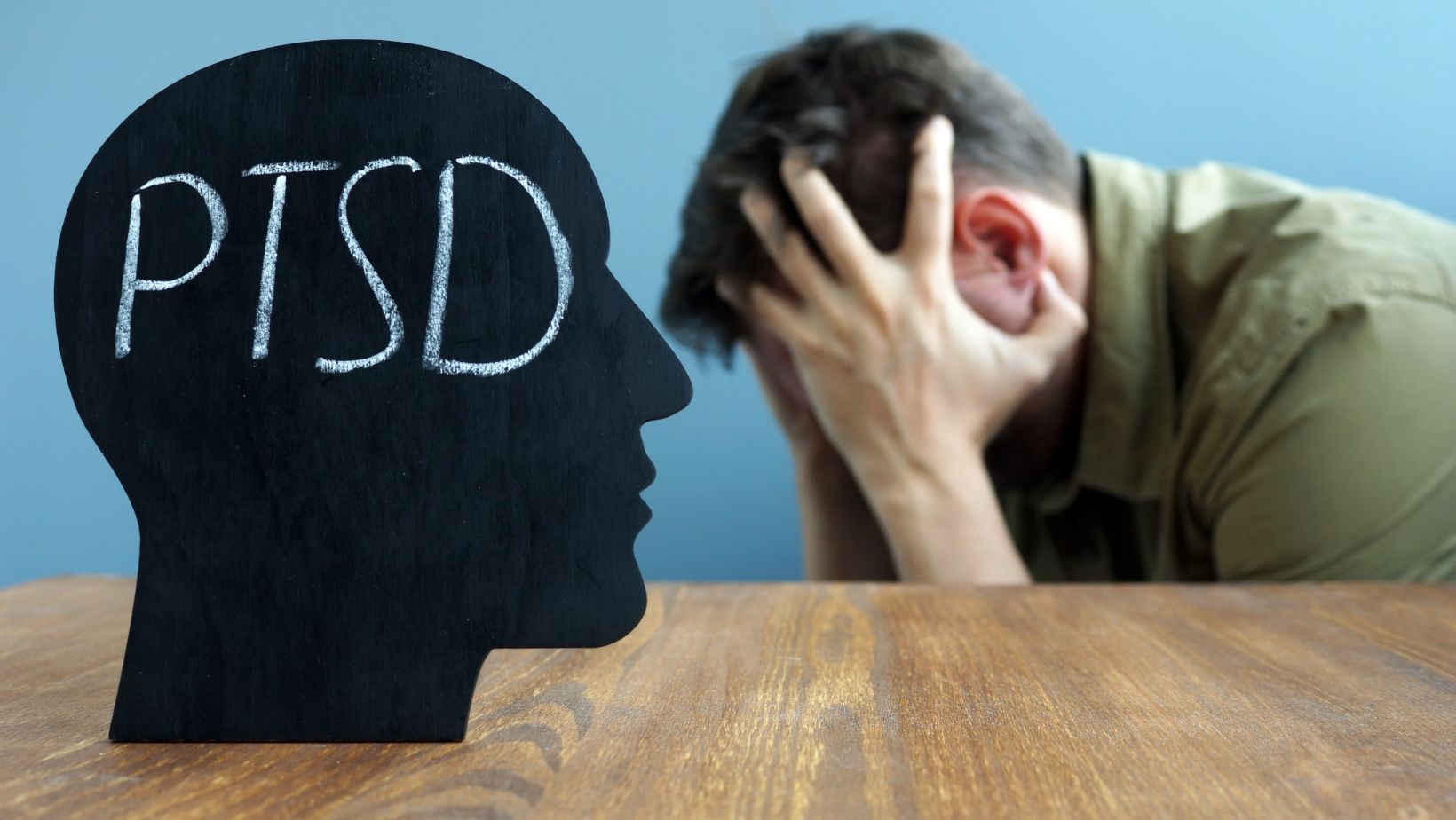
Post-Traumatic Stress Disorder (PTSD) is a mental health condition that develops in some individuals after they experience or witness a traumatic event. While it’s often associated with combat veterans, PTSD affects people of all ages and backgrounds. In fact, an estimated 3.6% of the U.S. population is diagnosed with PTSD each year, according to the National Institute of Mental Health (NIMH).
Understanding PTSD begins with recognizing its causes and symptoms. This article will provide a clear overview of what leads to PTSD, how it manifests, and why early recognition is essential for effective treatment.
What Is PTSD?
PTSD is not just a natural reaction to stress—it’s a persistent condition that disrupts a person’s ability to function in daily life. For some, symptoms appear immediately after the traumatic event, while for others, it may take months or even years to develop.
Key features of PTSD include:
– Intense fear or helplessness following trauma.
– Recurring memories or nightmares of the event.
– Avoidance of situations or thoughts that trigger memories.
– Emotional and physical reactions that interfere with daily life.
While everyone reacts differently to trauma, PTSD is diagnosed when symptoms last for more than one month and cause significant distress.
Causes of PTSD
PTSD is triggered by exposure to trauma, but not everyone who experiences trauma develops the condition. Factors like the nature of the event, individual resilience, and pre-existing mental health can influence whether someone develops PTSD.
1. Traumatic Events
Any situation that involves fear, threat, or harm can lead to PTSD. Common triggers include:
– Combat or War: PTSD is prevalent among veterans, with studies showing that 10-20% of military personnel who served in combat zones develop the condition.
– Physical or Sexual Assault: Survivors of abuse or assault often experience PTSD, especially if the trauma is repeated or prolonged.
– Natural Disasters: Earthquakes, hurricanes, and other catastrophic events can leave lasting psychological scars.
– Accidents: Serious car crashes, workplace injuries, or other life-threatening incidents may trigger PTSD.
– Loss and Grief: Witnessing or experiencing the sudden death of a loved one can lead to trauma-related symptoms.
2. Risk Factors
Not everyone exposed to trauma develops PTSD. Certain risk factors increase vulnerability, including:
– Past Trauma: Individuals with a history of abuse or neglect are more likely to develop PTSD after a new trauma.
– Mental Health History: Pre-existing conditions like anxiety or depression heighten the risk.
– Lack of Support: A weak social support system can make it harder to cope with trauma.
– Severity of Trauma: The more severe or prolonged the event, the higher the likelihood of PTSD.
Symptoms of PTSD
PTSD symptoms can be divided into four main categories, as outlined by the Diagnostic and Statistical Manual of Mental Disorders (DSM-5). Each individual’s experience may vary, but these categories offer a framework for understanding the condition.
1. Intrusive Thoughts
People with PTSD often relive the trauma through:
– Flashbacks: Feeling as if the event is happening again.
– Nightmares: Disturbing dreams about the traumatic experience.
– Unwanted Memories: Persistent, uncontrollable thoughts about the event.
Example:
A car crash survivor may frequently relive the moment of impact, triggered by sights or sounds like screeching brakes.
2. Avoidance
Avoidance behaviors are efforts to block out reminders of the trauma. This may include:
– Avoiding Places or People: Staying away from locations or individuals associated with the event.
– Suppressing Thoughts: Actively avoiding discussions or memories of the trauma.
Impact:
While avoidance provides temporary relief, it often leads to isolation and reinforces PTSD symptoms over time.
3. Negative Changes in Mood and Thinking
PTSD can alter a person’s outlook on life, leading to:
– Feelings of Guilt or Shame: Believing they are to blame for the trauma.
– Negative Self-Perception: Low self-worth or feelings of hopelessness.
– Difficulty Experiencing Joy: Losing interest in activities they once enjoyed.
Statistics:
According to the American Psychiatric Association, about 48% of people with PTSD experience co-occurring depression.
4. Hyperarousal and Reactivity
PTSD often keeps the body and mind in a heightened state of alertness, manifesting as:
– Irritability or Anger: Overreacting to minor stressors.
– Hypervigilance: Always feeling on edge or in danger.
– Sleep Disturbances: Difficulty falling or staying asleep due to fear or restlessness.
Why Early Recognition Matters
Left untreated, PTSD can have a ripple effect on every aspect of life, leading to:
– Strained relationships.
– Reduced work or school performance.
– Substance use as a coping mechanism.
Recognizing the signs early allows for timely intervention and better outcomes.
Seeking Help for PTSD
The good news is that PTSD is treatable. A combination of therapy, support, and, in some cases, medication can help individuals regain control over their lives.
Common Treatments
1. Cognitive Behavioral Therapy (CBT): Focuses on reframing negative thoughts and beliefs.
2. Eye Movement Desensitization and Reprocessing (EMDR): Uses guided eye movements to help process traumatic memories.
3. Medication: Antidepressants like SSRIs are commonly prescribed to manage symptoms.
The Role of Support Networks
Strong social connections play a critical role in recovery. Family, friends, and support groups provide encouragement and understanding, reducing feelings of isolation.
Conclusion
PTSD is a complex condition that affects people in deeply personal ways. By understanding its causes and symptoms, we can foster greater awareness and empathy for those living with the condition. Whether it’s a veteran coping with combat trauma or a survivor of abuse, early recognition and intervention are key to healing.

If you or someone you know is struggling with PTSD, reaching out to a mental health professional is a crucial first step toward recovery. With the right support, it’s possible to reclaim a sense of peace and well-being.













